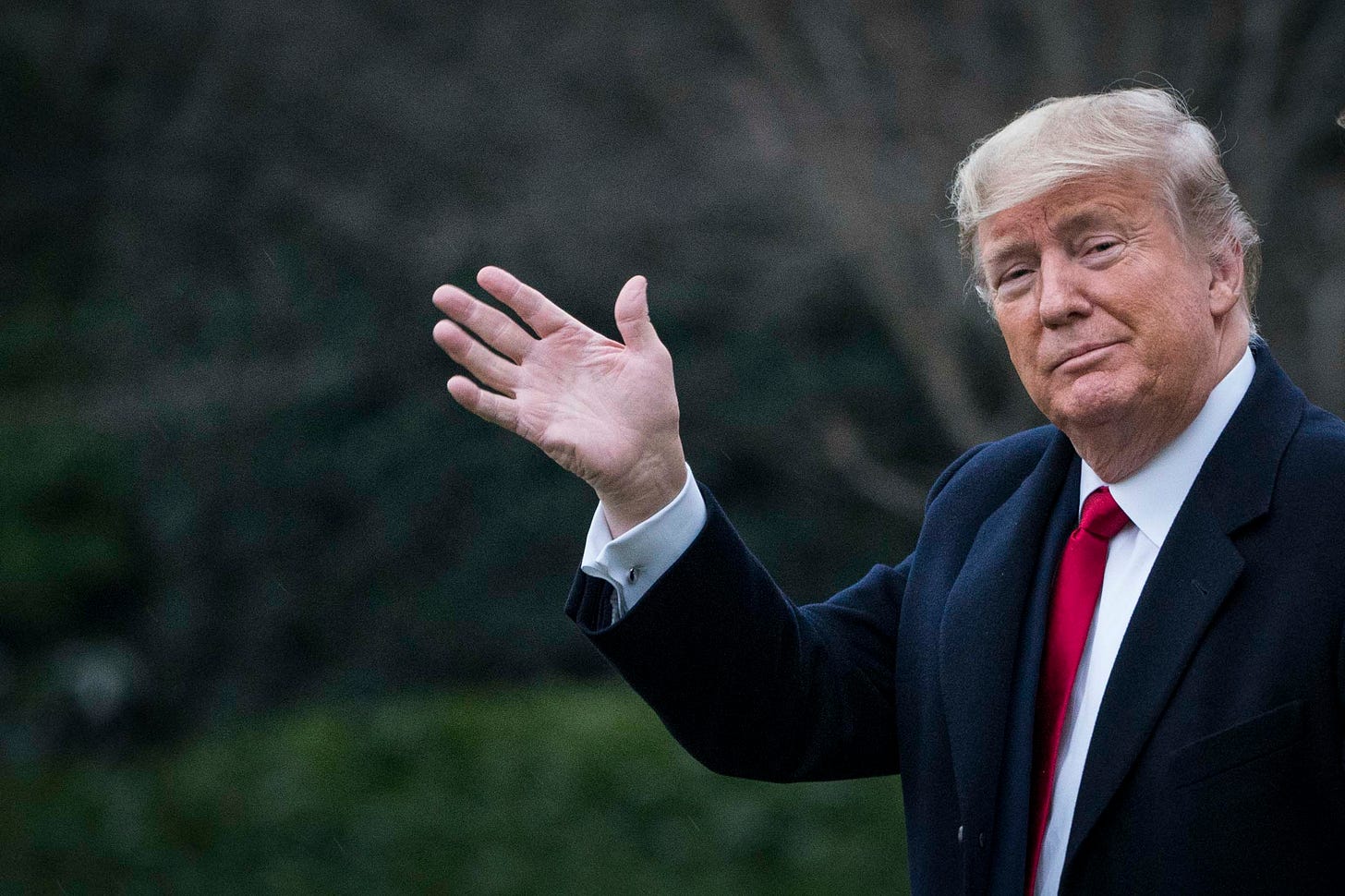Trump Didn’t Just Lose Swing Voters—the GOP Did as Well
Post-election focus groups show some swing voters are done calling themselves Republicans

When moderating focus groups, one of the most entertaining activities is posing hypotheticals. Smart politicians hate hypotheticals, and usually manage to avoid answering them. But focus group respondents—who are paid to answer questions and don’t mind the tougher ones—provide some of their most meaningful insights when asked questions that extend beyond the plausible.
I conducted 21 monthly focus groups of “Obama-Trump” swing voters from March 2019 through November 2020, and my favorite question was this: “If Obama and Trump were running against each other in the 2020 election, which one would you vote for?”
Overwhelmingly and consistently, these “weathervane” voters chose Trump and forgave his shortcomings. Our focus group conversations suggested the election wouldn’t be a blowout for Biden in upper Midwest swing states where he led—sometimes widely—in various polls. Indeed the outcome was especially close in three of the states we tracked: Wisconsin, Pennsylvania, and Michigan.
Starting last month, we revived and re-oriented the Swing Voter Project to focus on “Trump-to-Biden” voters in the 10 closest 2020 swing states. And, once again, it was time to create some new hypotheticals. Given rampant speculation about whether the GOP’s travails would affect the 2022 midterms, it made sense to gauge the thinking of swing voters.
I asked the “Trump-Biden” respondents to look backward in order to look forward. On February 9, in a pair of online focus groups, I posed this question to seven men and seven women: “Imagine you were 18 years old again and registering to vote for the first time. Watching the current political scene, would you register as a Democrat, Republican, or Independent?”
Among these 14 “Trump-Biden” respondents, eight are currently registered as Republicans. And the key point that should command the GOP’s attention is this: Only one of these eight would choose to be a Republican if he could magically return to age 18 and re-register.
And the GOP isn’t picking up swing voters in other parties. Among the other six respondents, two are registered Democrats who’d remain Democrats; two are registered Democrats who’d become Independents; and two are registered Independents who’d remain Independents.
What explains the registered Republicans’ change of heart? There are a lot of reasons, but for some, the Trump years have pushed them away from the GOP and into the Democrats’ arms—where they felt far more welcome.
“I just think watching how things unfolded over the last year, I just feel like the Democrats have been so much more progressive and inclusive, and tried to bring everybody together rather than divide everyone,” said Shelley, a 53-year-old from Minnesota.
This sentiment was echoed by Danna, a 51-year-old Arizonan. “I've been Republican my whole life, and my father has too. I was raised that way—up until this last [election]. And I just think that party [the Democrats], I guess before, it seemed like it was…more liberal than I wanted to be. But it seems like with Biden in place…he sticks to his party—but he's trying to outreach to everyone and just trying to be unified and obviously bipartisan. But he just seems to be out for the good for everybody. He's open and empathetic to what everybody needs,” Danna said.
For at least one registered Republican, it’s about only the former President: “Trump made a mockery of Republicans, and that's why I would register as a Democrat,” declared Dixie, a 39-year-old from Michigan. She is one of the many respondents who would be very upset if Trump ran again in 2024.
For other disaffected Republican swing voters, jumping back to age 18 would provide the opportunity to think anew about politics and disassociate from partisan unpleasantness altogether. This serves as a warning sign for Democrats, too.
“Well, being young again, and knowing what I know about both parties and the broken promises, and all the things that I've learned over the years, being young and going out and being an independent person with my own views I think would work out best for me,” said Philip, a 40-year-old from Michigan
Ashley, a 24-year-old from western Pennsylvania, sounded a similar note: “I’d register as an independent because there's things that I like about both sides, and there's things that I don't like about both sides, and I don't feel like I would want to be affiliated with either one. And I feel like I would be more represented if I was just able to stick to the Independent Party.”
Jim, a 62-year-old who lives at the opposite end of the Keystone State, said, “I just think if I was 18 years old again, I'd like to not be leaning one way or the other. I'd like to still be in an advanced learning process, and try to understand both sides of the process.”
Added Polina, 32, also from eastern Pennsylvania: “I have certain beliefs, and they don't align necessarily with either party.”
The one registered Republican who said he would register again with the GOP was a 50-year-old from Arizona named John. He said he would choose the GOP all over again for “conservative values; the fact that they try to manage the budget ... [and] abortion and the way they look at that. Other things go along with my spiritual beliefs as well.”
If there’s any silver lining for the GOP, it’s something I uncovered in our prior month’s focus groups. Most “Trump-Biden” voters we interviewed on January 21 are willing to consider Republican congressional candidates in 2022. They will not let Trump’s negative halo cast a shadow over everyone with an “R” after his or her name. These voters say they will judge the person on his or her merits, not by party affiliation.
This suggests that the most successful Republican candidates in swing states next year will be those who distance themselves the furthest from their own party.

